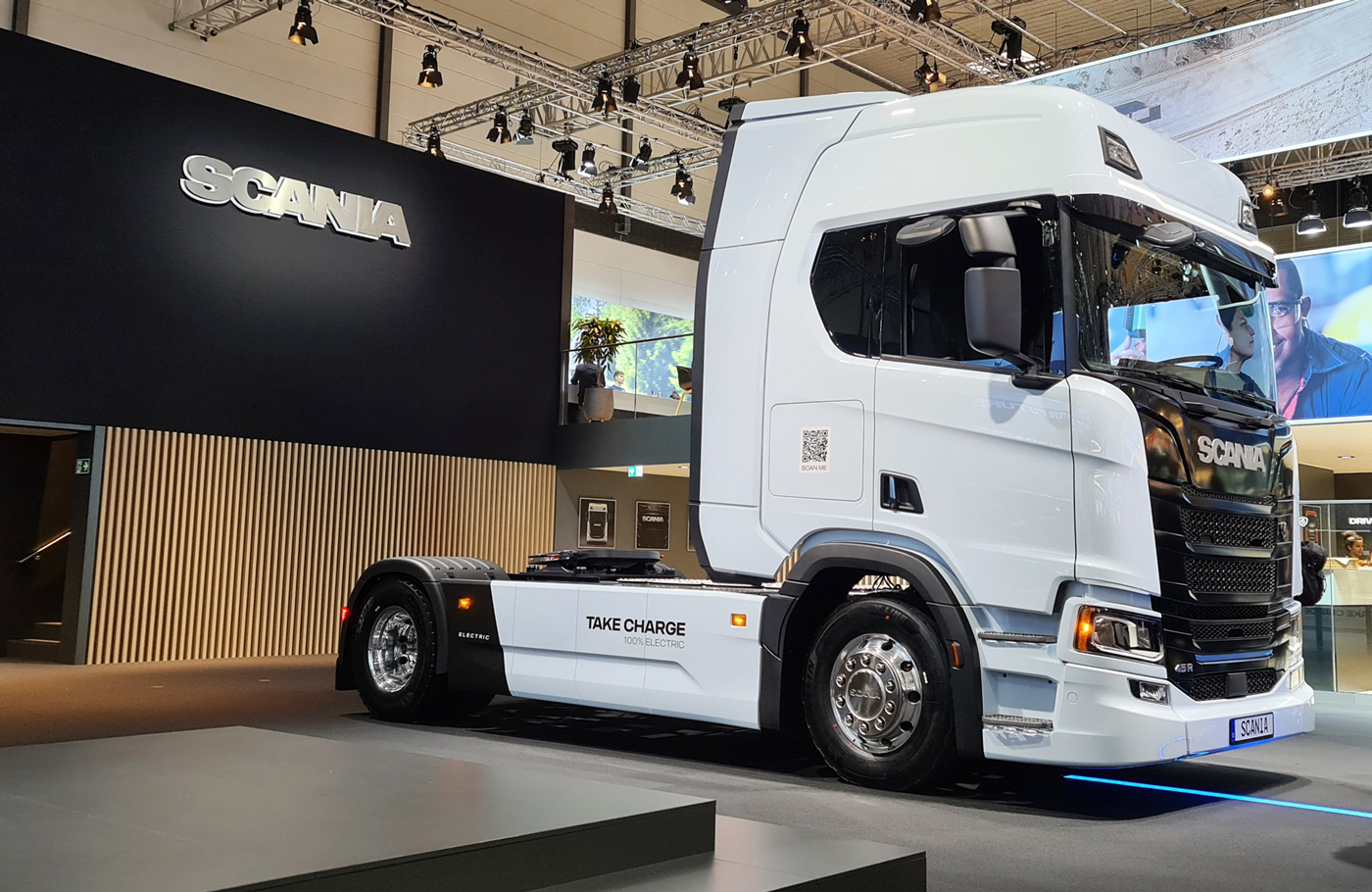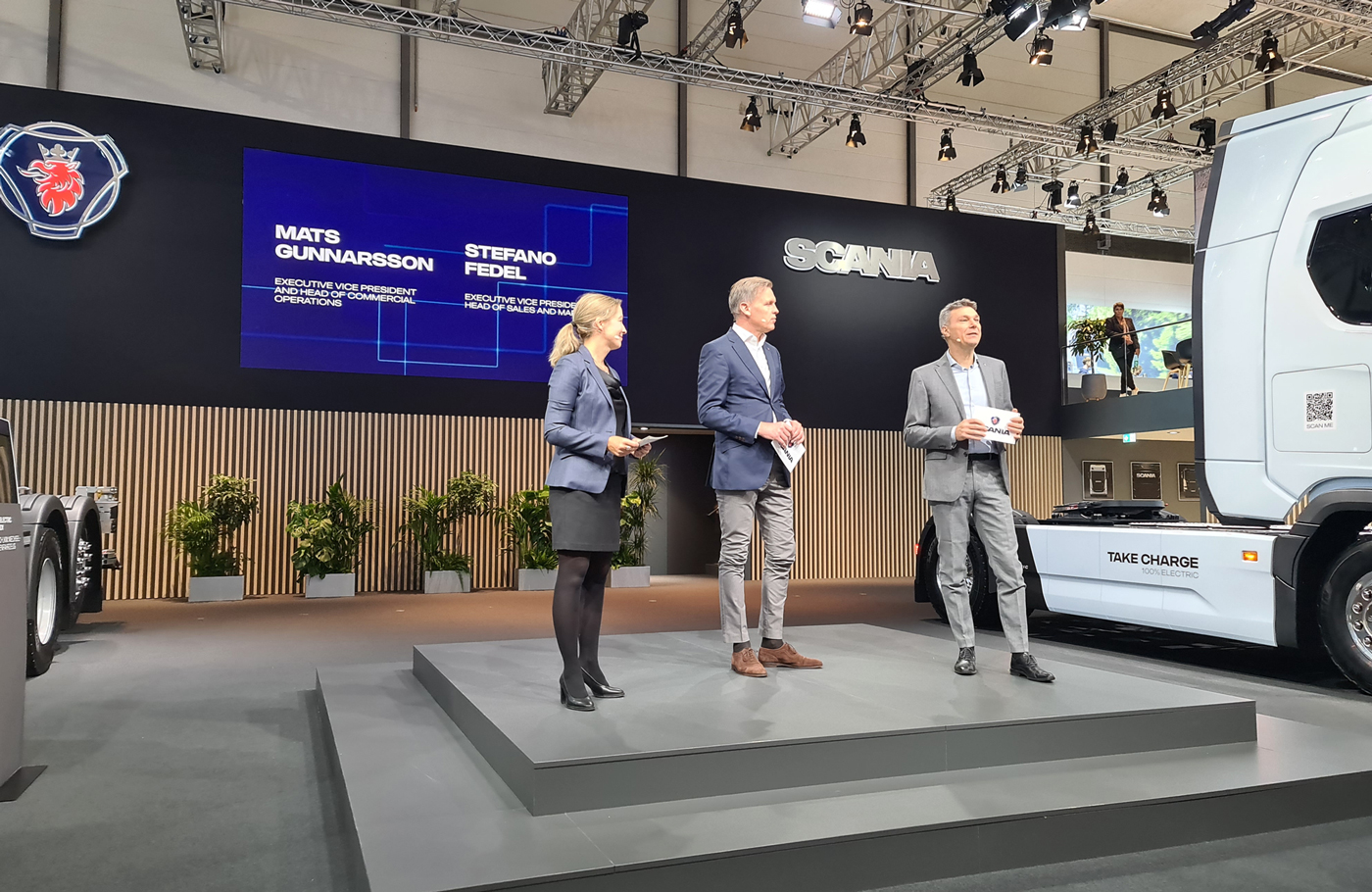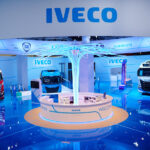Scania decarbonises heavy transport
Scania decarbonises heavy transport
At IAA 2022, Scania demonstrated the future of transport – and it’s both sustainable and electric. Speaking at the company’s press conference, Christian Levin, CEO of the Scania Group, revealed that 50% of the total vehicle sales volume is expected to be electrified by 2030.
Scania premiered its new electrified tractor for regional transport operations, its powerful solutions comprising digital and connected services, and its charging solutions at the expo. The group’s purpose is to drive the shift to a sustainable transport system heading for 100% electric transport. A total of 14 vehicles, mostly electric, were displayed at IAA Transportation, encompassing a versatile range of vehicles that are up and running for most applications.
“In our electrification journey, we are leaving city limits behind us and heading onto intercity motorways. We have recently delivered an electrified timber truck to a customer in northern Sweden, and that is a very real token of the fact that we now can electrify all heavy transport applications,” said Levin.
To enable these long-distance motorway transporters, Scania is preparing for megawatt charging to charge trucks for 45 minutes for 4.5 hours of travel. In the coming years, the electrified share of Scania’s vehicles will grow significantly.
According to Levin, Scania has bold plans when it comes to decarbonisation. “We are working to decarbonise across scopes, from our industrial operation to our products when they are in use. When measuring our climate impact we are always taking the well-to-wheel perspective, also factoring in the origin of the energy used. Through our science-based carbon reduction targets, there are clear goals and defined priority areas for achieving these,” he said.


“As we ramp up vehicles with zero tailpipe emissions we are increasingly focusing on other sources of emissions. Scania once again shows the way by setting the most ambitious supply chain decarbonisation targets in our industry,” he continued. “We’ve identified four ‘hotspots’ – batteries, steel, aluminium, and cast iron – which together account for more than 80% of carbon emissions emanating from the supply chain. By 2030 we will cut emissions from these hotspots by 60 to 85%.”
Scania Super, the new (and final) combustion engine powertrain, delivers fuel savings that will typically reach 8% for long-haulage customers. “We can hereby both deliver on our decarbonising targets and create value for our customers. This new powertrain will be demonstrated in several vehicles at IAA,” Levin noted early on at the show.
Driving the shift entails assisting customers in taking steps towards transitioning to electric fleets. Therefore, a complete system of services was on display at IAA – from analyses to complete charging solutions. “Going forward, we offer a total turnkey solution for our electrified customers – a solution that is scalable for the future. There are no longer any excuses not to start the transition to zero-emission vehicles,” emphasised Levin.
You can watch Scania’s full press conference from the IAA here.
Published by
Focus on Transport
focusmagsa




